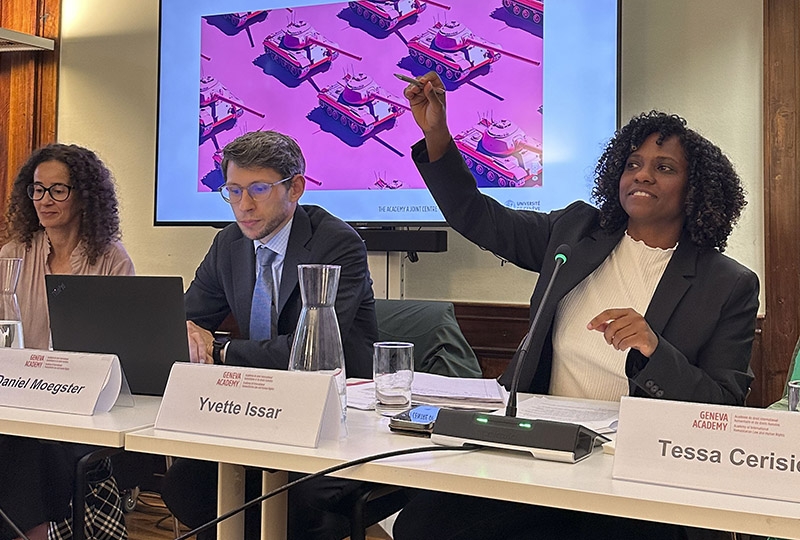Four Key Compliance Failures
Daniel Moegster of the UN Office of the High Commissioner for Human Rights (OHCHR) summarized findings from a recent report (A/HRC/58/41), identifying four major areas of concern:
- Inadequate Safeguards – In some States, political considerations outweigh risks of international human rights and humanitarian law violations, especially when transferring arms to allies.
- Corporate Due Diligence Gaps – Arms firms do not assess human rights and humanitarian law risks, and 'strategically offshore' their operations to more relaxed jurisdictions.
- Lack of State Oversight – Governments rarely require companies to assess downstream risks and do not do enough to investigate unlawful arms transfers.
- Barriers to Justice – Victims lack access to information, face strict standing requirements, and courts often defer to government decision-making.
'These gaps mean arms are being transferred in ways that foreseeably contribute to human rights and humanitarian law violations,' Moegster warned.
What does the law say and [not] do?
Dr. Hélène Tigroudja of Aix-Marseille University emphasized that international law, and in particular the International Covenant on Civil and Political Rights (ICCPR), does apply to arms transfers. 'Article 6 on the right to life is clear—states have duties when arms exports cause foreseeable harm abroad,' she said. She criticized the judicial tendency to label arms decisions as political and thus non-reviewable. Dr. Tara Van Ho of the University of Essex added that while States have clear obligations in that regard, arms companies have corresponding and independent responsibilities too, and must adhere to the UN Guiding Principles on Business and Human Rights. 'The arms trade is not uniquely complex,' she said. 'Oil, pharmaceuticals, and mining sectors all follow due diligence standards—so must arms manufacturers.' Van Ho stressed the need for enforceable contracts, internal accountability, and state oversight.
Chloe Bailey of ECCHR described efforts to hold European states and companies accountable for arms sales to the Saudi-led coalition. 'Export data is vague, and end-user info is withheld,' she said. 'It’s almost impossible to build legal cases when the facts are kept secret.' She noted that even in cases with clear evidence, courts often dismiss challenges as either too vague or too late—an outcome caused by the very secrecy they protect.











